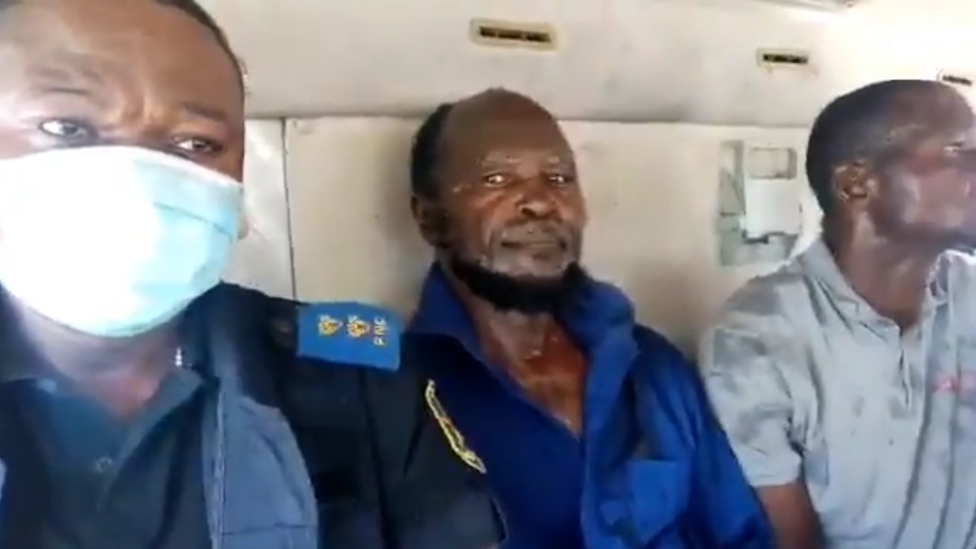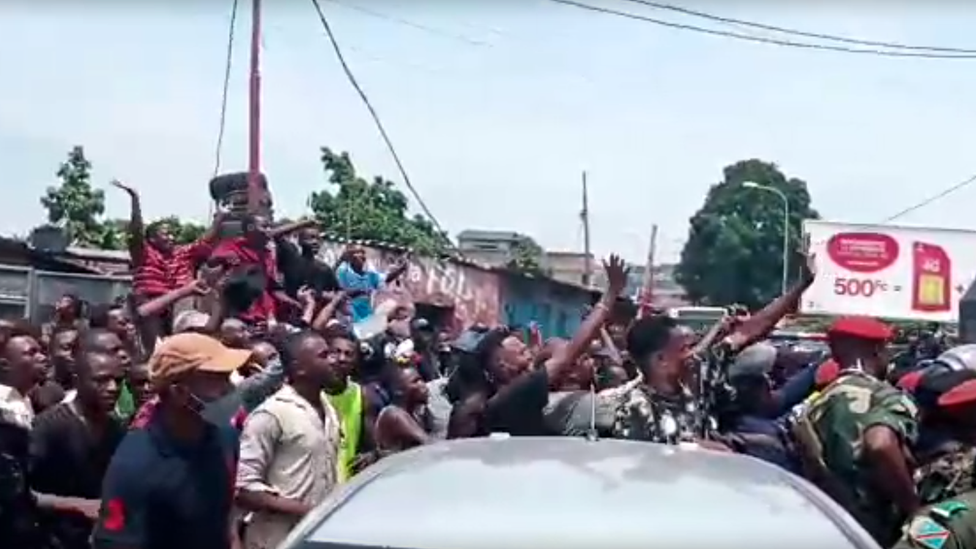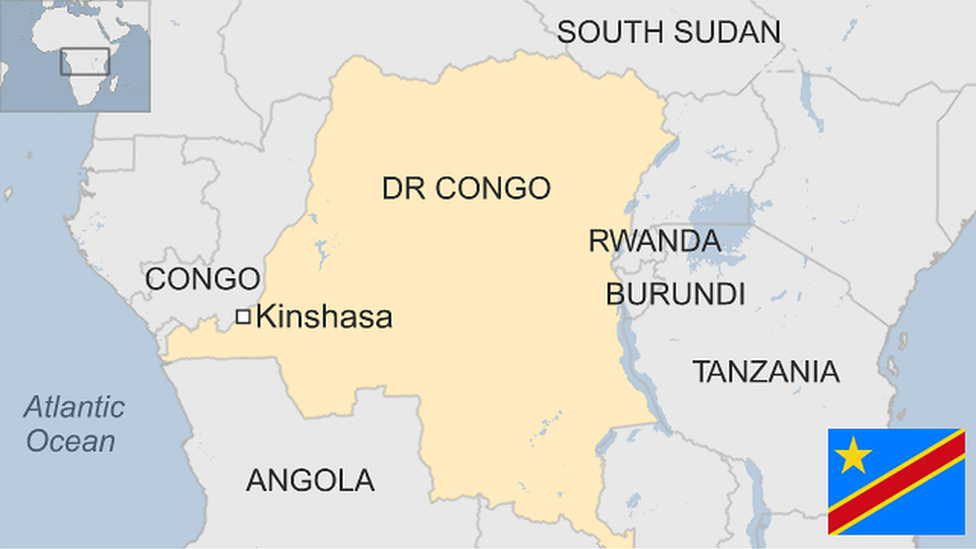DR Congo's 'prophet' leader of Bundu Dia Kongo arrested
- Published

Ne Muanda Nsemi (c) was arrested after a dramatic stand-off
A self-styled prophet has been arrested by police in the Democratic Republic of Congo after a shoot-out in a residential neighbourhood of the capital, Kinshasa.
"Mission accomplished, it's done," the force tweeted, external after staking out and capturing Ne Muanda Nsemi.
He is the leader of an outlawed group called Bundu Dia Kongo (BDK) that wants to revive the ancient Kongo kingdom.
The arrest comes a week after deadly clashes between BDK members and police.
At least 20 people are said to have died in those in attacks in Kongo Central province, which borders Kinshasa.
DR Congo's human rights minister has appealed to the military prosecutor to open an investigation into the killings.
Police seeking to arrest Msemi sealed off part of Kinshasa's Sakomi district from the early hours of Thursday.
At one point there was a 45-minute exchange of gunfire, the BBC's Emery Makumeno in Kinshasa reports.
Eight people were killed, 35 injured and 203 arrested during the operation, according to a statement from DR Congo's interior ministry.
When officers seized Msemi and drove him away in a police vehicle, relieved residents sang their praises and taunted Bundu Dia Kongo's leader.
"Who are you to defy Kasongo?" they chanted, referring to Kinshasa's police chief Sylvano Kasongo.

Relieved residents celebrated Ne Muanda Nsemi's arrest
Nsemi, a former MP, is a thorn in the side of DR Congo's political establishment.
The Bundu Dia Kongo movement is campaigning to restore a monarchy in parts of DR Congo, Congo-Brazzaville, Angola and Gabon.
It has also been calling for people of non-Bakongo ethnicity to leave the Kongo Central province.
In 2017, Nsemi was arrested and held in jail after police him of inciting violence. But armed supporters stormed the prison and freed him.
Two years later, he was granted a presidential pardon.

Who is Ne Muanda Nsemi?
Former chemistry professor at the University of Kinshasa
Comes from the minority Bakongo ethnic group
Claims to have received a revelation from the "Archangel of the Kongo" in 1969
Formed the Bundu Dia Kongo (BDK) movement in 1986
Wants to re-establish the ancient Kongo kingdom that once straddled four modern-day states
Supporters and security forces involved in violent clashes
Elected to parliament in 2006 as an independent
Formed the Bundu Dia Mayala political party in 2010 after BDK banned
Arrested in March after security forces besiege his home for two weeks
Escaped from jail in May 2017
Granted a presidential pardon in 2019
Related topics
- Published31 January
